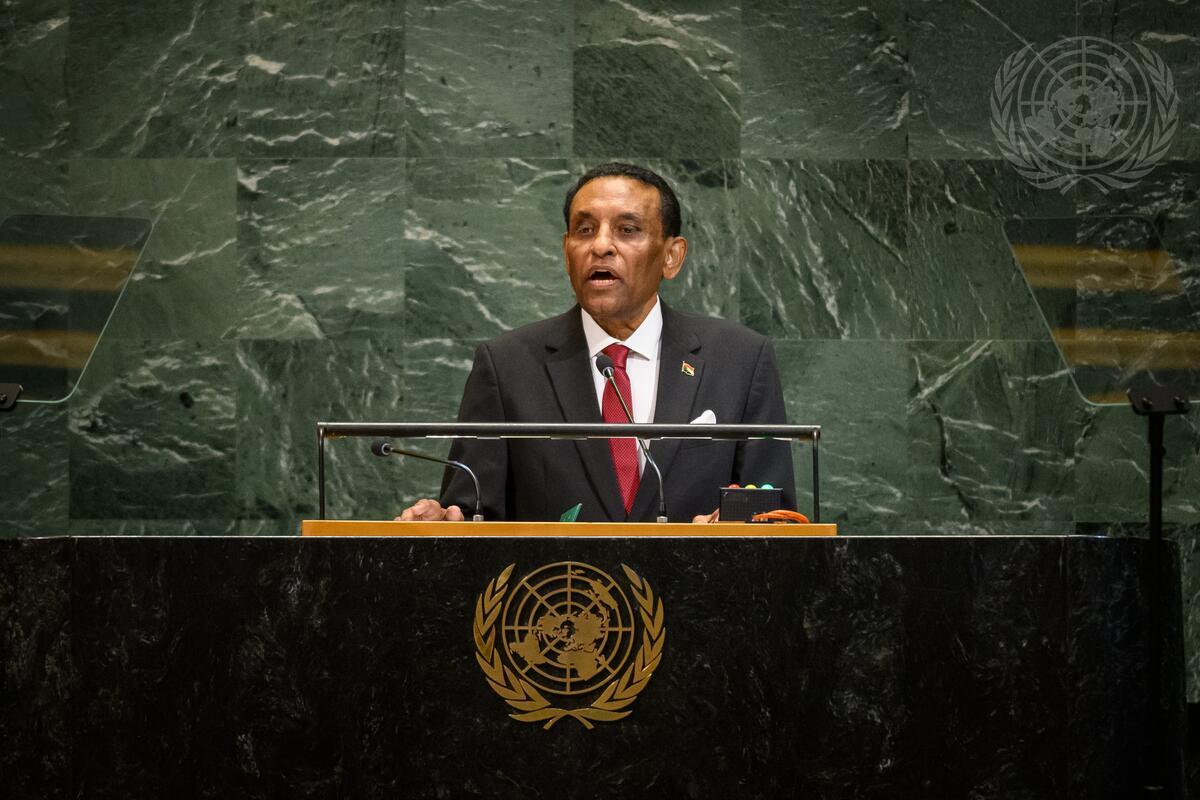Sudanese Prime Minister Kamil Idris on Thursday, September 25 called on the international community and the United Nations to designate the Rapid Support Forces (RSF) as a “terrorist militia.”
During an address to the 80th session of the UN General Assembly in New York, Idris urged the international community and the UN to stop the flow of weapons and mercenaries into Sudan.
“Sudanese people have faced existential threats and dangers because of the RSF, which has adopted a policy of terrorising civilians.” Idris said.
The Prime said his country is witnessing enormous challenges and risks shaking the (UN) Charter and multilateralism, threatening regional and international stability, while the foundations of international law are eroding, and crimes of genocide, aggression and the use of foreign mercenaries to occupy states’ territories and massacre their people are escalating.
Since April 2023, Sudan’s army and the RSF have been locked in a civil war that has left thousands dead and displaced millions. Idris also called for the immediate lifting of the siege on the city of El-Fasher, in line with UN Security Council resolutions.
He condemned the continued international silence over the siege and the shelling of displacement camps, mosques, and health and service facilities across the country.
El-Fasher has witnessed intense fighting between the army and RSF since May 2024, despite international warnings about the risks of violence in a city that serves as a key humanitarian hub for the five Darfur states.
Idris also touched on the catastrophic situation in Gaza, saying it poses grave dangers to the region and its people.
“There can be no stability or security in the region without a comprehensive and lasting solution to the Palestinian issue, enabling the establishment of a Palestinian state with Jerusalem as its capital on the 1967 borders,” he said.
He condemned the recent Israeli attack on Hamas leadership in Doha, Qatar, saying it threatens international peace and security.
Meanwhile, world leaders and diplomats at the UN General Assembly intensified efforts to end the war in Sudan. Alan Boswell, the International Crisis Group’s project director for the Horn of Africa, said this year’s high-level meetings could be “make-or-break” for stopping the conflict.
“For the first time since the war broke out more than two years ago, Sudan’s most influential outside powers agreed this month on a roadmap to end the war,” Boswell said in a statement. “Now comes the huge task of trying to convince Sudan’s warring parties to stop fighting.”
The United States, Saudi Arabia, Egypt and the United Arab Emirates issued a joint statement on September 12 calling for a humanitarian truce for three months, followed by a permanent ceasefire and a nine-month transition to a civilian-led government. The four, known as the Quad, met on Wednesday to discuss implementation.
Another meeting convened by the African Union, the European Union, and the foreign ministers of Germany, France and the United Kingdom also called for de-escalation. Representatives of the Quad, a dozen other countries, the Arab League, the UN and IGAD attended.
A statement issued after the meeting urged the government and RSF to resume direct negotiations and welcomed the Quad’s September 12 proposal. It strongly condemned the involvement of unnamed foreign countries and “non-state actors” in fueling the conflict.
UN Secretary-General Antonio Guterres, in his “State of the World” speech on Tuesday, told world leaders: “End the external support that is fueling this bloodshed. Push to protect civilians.”
“In Sudan, civilians are being slaughtered, starved, and silenced,” Guterres said. “Women and girls face unspeakable violence.”
The deputy prosecutor of the International Criminal Court said in July that the tribunal believes war crimes and crimes against humanity are taking place in Darfur, where the RSF controls all regional capitals except Al Fasher in North Darfur.
The RSF and their allies announced in late June that they had formed a parallel government in areas they control. The UN Security Council rejected the plan, warning that a rival government threatens the country’s territorial integrity and risks further exacerbating the civil war.
